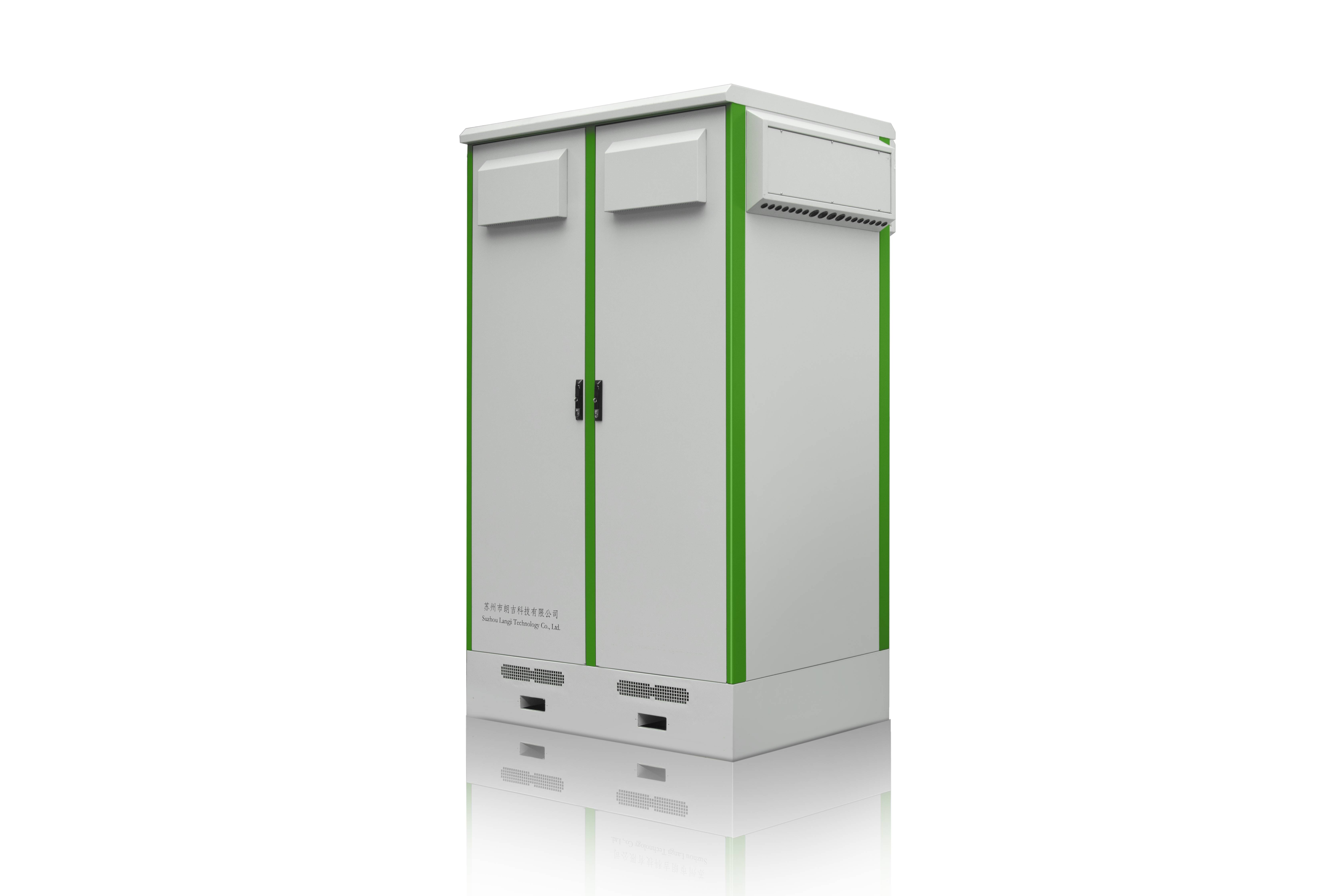
7월 . 04, 2025 11:24 Back to list
Industrial Energy Storage Solutions for Businesses Reliable Commercial & Industrial Energy Storage Factories & Exporter
- Introduction to industrial energy storage
: market growth and impact - Technological advantages in commercial and industrial energy storage
- Comparative analysis of prominent commercial and industrial energy storage factories
- Export capabilities and leading exporters in the sector
- Customizable product solutions for diverse client requirements
- Application scenarios and success cases with data-driven insights
- Future outlook on industrial energy storage and sustainable power

(industrial energy storage)
Industrial Energy Storage: Market Growth and Impact
Industrial energy storage has become an essential component in today’s global power landscape, driven by the urgent need for grid stability, renewable integration, and commercial energy management. In 2023, the global industrial energy storage market was valued at approximately USD 32.6 billion, and is projected to reach USD 110.3 billion by 2030, exhibiting a CAGR exceeding 19%. This rapid acceleration is due to increased adoption in manufacturing, data centers, logistics, and utility-scale facilities. According to industry reports, over 150GW of energy storage capacity is expected to be installed worldwide by 2027, with the commercial and industrial segments accounting for 32% of this growth. This expansion highlights the vital role advanced battery systems now play in ensuring power continuity, cost optimization, and sustainability goals for industrial clients. The demand is accentuated by grid modernization efforts and corporate commitments to net zero targets, making industrial energy storage a strategic necessity for competitive enterprises.
Technological Advantages in Modern Storage Solutions
Modern commercial and industrial energy storage factories are leveraging cutting-edge technologies to enhance storage capacity, lifecycle durability, and safety. The industry’s shift towards lithium-iron phosphate (LiFePO4) batteries has resulted in products with up to 6000 cycle lifespans and energy densities exceeding 160 Wh/kg. Advanced battery management systems (BMS) now ensure real-time monitoring, enabling predictive maintenance and system resilience. Modular and scalable configurations provide flexibility from 500 kWh to multi-megawatt-hour deployments.
According to a 2023 comparative analysis, efficiency ratings of best-in-class commercial and industrial energy storage products surpassed 92%, while round-trip energy efficiency frequently approached 90%-95%. Integration with AI-powered energy management platforms enables automated peak shaving and load balancing, reducing operating costs by up to 35% for industrial clients. The evolution from legacy lead-acid solutions to state-of-the-art lithium-ion variants also means a significant reduction in environmental impact, as new chemistries offer lower critical mineral requirements and improved recyclability rates.
Factory Comparison: Leading Suppliers in the Market
The competitive landscape for commercial and industrial energy storage factories is characterized by rigorous R&D investment, global manufacturing footprints, and differentiated product portfolios. Below is a comparative table of top producers based on capacity, technological specialization, and market reach:
| Factory Name | Annual Production Capacity (GWh) | Key Technology | Product Range | Global Supply Regions |
|---|---|---|---|---|
| Envision Energy | 10 | LiFePO4/Smart BMS | 1MW-100MW+ systems | Asia, Europe, Americas |
| CATL | 22 | LFP/NMC Modular | 500kWh-200MWh | Global |
| Samsung SDI | 8.5 | High-voltage Li-ion | Industrial racks, containerized | Europe, North America |
| LG Energy Solution | 14 | ESS with advanced BMS | Container, cabinet, rack | Global |
| BYD | 9 | LFP systems | Flexible modular | Asia, Africa, Europe |
This comparative data clarifies how manufacturers position themselves through specialization, scale, and regional focus. Leaders such as CATL and LG Energy Solution have distinguished themselves by robust R&D pipelines, safety-driven platforms, and global project implementations, which benefit clients through both product quality and scalability.
Export Expertise and Market Leadership in Energy Storage
Export-oriented commercial and industrial energy storage exporters play a pivotal role in facilitating cross-border deployments. In 2022, China alone exported over 4.2 GWh of commercial battery storage, capturing approximately 50% of the global export market for these products. Exporters operating at scale differentiate themselves by rigorous compliance with international standards such as IEC 62619, UL 9540, and local grid codes, facilitating seamless integration in multiple legal and technical jurisdictions.
Major exporters not only provide advanced system integration but also back solutions with comprehensive after-sales support, remote diagnostics, and multi-language technical training. Key global logistic hubs, including Rotterdam, Singapore, and Los Angeles, allow export-oriented factories to deliver full project shipments in under six weeks, supporting rapid industrial rollouts on a global stage. With tailored logistics and engineering support, exporters decrease risk for industrial clients, enabling smooth adoption of advanced storage solutions in regions with unique technical and regulatory requirements.
Customizable Product Solutions Serving Varied Industrial Needs
One of the defining features of the top commercial and industrial energy storage product offerings is their customizability. Factories provide modular architectures that can be scaled from small enterprise deployments of 250 kWh to complex multi-site operations exceeding 100 MW. Options include mobile battery containers, fixed rack-based arrays, and hybrid microgrid-ready solutions. Integration with renewable power sources such as solar and wind is now standard, with DC coupling and hybrid inverters providing seamless power conversion and storage.
Custom solutions are engineered based on client load profiles, available real estate, redundancy needs, and power quality goals. Top manufacturers partner with customers from early feasibility assessments through to post-installation optimization, using simulation software to predict energy savings, emissions reductions, and return on investment. Furthermore, advanced temperature management and fire suppression systems are integrated for enhanced safety, catering to the strict requirements of industrial and commercial applications like data centers, cold storage, and critical infrastructure. As reported by Frost & Sullivan, custom solutions have delivered OPEX reductions averaging 28%, with ROI periods as short as 2.7 years for heavy industry clients.
Application Scenarios and Data-Driven Case Studies
Commercial and industrial energy storage is being leveraged across a multitude of scenarios for operational efficiency, cost savings, and environmental benefits. In automotive manufacturing, high-capacity storage has enabled facilities to participate in frequency regulation and demand response markets, earning up to $45,000 per MW annually in additional revenue streams. Data centers have shifted to battery-backed systems to boost uptime from 99.98% to 99.9999%, eliminating generator reliance and reducing fuel consumption by over 410 metric tons per year.
In logistics and cold storage, rapid deployment of modular storage products has cut average power costs by 25% and protected inventory from fluctuations in regional grid stability. A European case study of a beverage production plant adopting a 12MWh battery system reported a 37% cut in peak demand charges, resulting in annual utility bill savings of €420,000. In renewable microgrid projects serving remote industrial mining operations, storage deployment extended power availability from 8 hours to 36 hours, increasing productivity and significantly reducing diesel generator usage. These real-world cases underscore the adaptability and performance advantages of modern storage solutions across industry verticals.
Future Outlook: Industrial Energy Storage as a Pillar of Sustainable Power
Looking ahead, industrial energy storage will play a foundational role in enabling energy transition, decarbonization, and grid modernization. With global commitments to carbon neutrality and renewable adoption accelerating, demand for flexible, reliable storage solutions is expected to multiply. Investment in advanced chemistries, AI-driven management, and fully integrated ecosystem offerings will further optimize project ROI and resiliency. Market analysts project that by 2030, over 65% of new manufacturing facilities will incorporate dedicated on-site storage. Strategic partnerships between commercial and industrial energy storage exporters, local integrators, and utility providers will be vital in overcoming infrastructure challenges and scaling these essential products globally.
In this dynamic environment, beneficiaries include not only direct industrial users, but also utility grids, renewable asset operators, and communities seeking resilient, sustainable power. As innovation persists, top suppliers will lead the charge, setting efficiency and safety benchmarks while responding flexibly to evolving industrial demands. Industrial energy storage is poised to remain at the forefront of the global energy revolution, supporting society’s ambitions for reliability, cost-effectiveness, and sustainability.

(industrial energy storage)
FAQS on industrial energy storage
Q: What is industrial energy storage?
A: Industrial energy storage refers to large-scale systems designed to store electricity for factories and industrial applications. It helps manage energy use, reduce costs, and improve grid reliability. These systems often use advanced battery technology.Q: What are commercial and industrial energy storage factories?
A: Commercial and industrial energy storage factories are manufacturing facilities that produce storage systems for business and industrial use. They build products like battery packs, control units, and energy management software. These factories support energy efficiency and sustainability.Q: How can I find a reliable commercial and industrial energy storage exporter?
A: Look for exporters with proven expertise, certifications, and positive customer feedback. Check if they comply with international safety and quality standards. Reliable exporters offer after-sales support and customized solutions.Q: What types of products do commercial and industrial energy storage companies offer?
A: They offer battery storage systems, management software, and integrated energy solutions for industrial environments. Products cater to different storage capacities and specific business needs. Some companies also provide installation and maintenance services.Q: What are the main benefits of using industrial energy storage products?
A: Industrial energy storage products help reduce energy costs, stabilize power supply, and ensure backup during outages. They also support the integration of renewable energy sources. These benefits make operations more sustainable and efficient.-
High-Efficiency Flywheel Mechanical Energy Storage Solutions - Leading Exporter & Manufacturer
NewsJul.04,2025
-
Distributed Renewable Energy Storage Solutions – Reliable, Scalable & Eco-friendly Systems
NewsJul.04,2025
-
Industrial Energy Storage Solutions for Businesses Reliable Commercial & Industrial Energy Storage Factories & Exporter
NewsJul.04,2025
-
Nashua Outdoor Power Supply Solutions – Reliable Exporter & Leading Product Company
NewsJun.10,2025
-
Electricity Supply Emergency Code Solutions – Reliable Products & Exporter Services
NewsJun.10,2025
-
Vault Portable Power Station – Reliable Energy Solution for Outdoor & Emergency Leading Company & Exporters
NewsJun.10,2025























